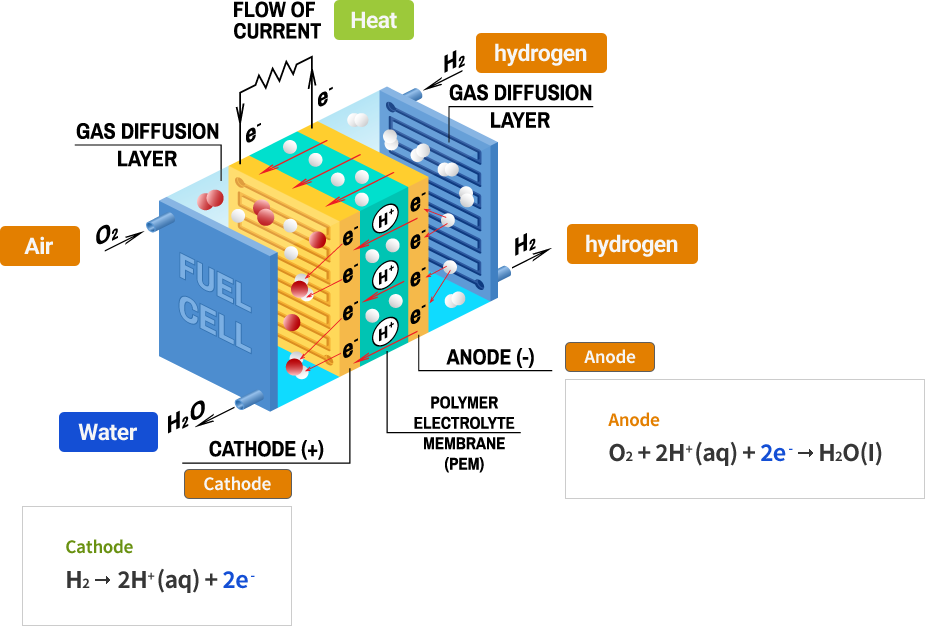Fuel cell
- What is fuel cell?
-
It is a generation device like an engine of an internal combustion that generates electrical energy by electrochemically reacting hydrogen and oxygen.
It is a green generator that generates electrical energy by electrochemically reacting hydrogen and oxygen with counter-use of electrolyzing water that produces hydrogen and oxygen.
Principle of fuel cell

Advantages of fuel cell
-
- High generation efficiency
-
- 45% or more of generation efficiency
- 85% or more of overall efficiency
-
- Green energy source
-
- Reduce greenhouse gas by 60%
- Reduce particulate matter by 99%
- No air pollution / Low noise
-
- The best space efficiency
-
- Higher generation compared to installation area
-
179
Fuel cell
-
19,800
(110 times)solar
-
39,600
(220 times)wind energy
Per 1MW (production area M²)
-
- High operational stability
-
- 24 hours/365 days full-time generation
-
95%
Fuel cell
-
15%
solar
-
25%
wind energy
- Why do we need hydrogen fuel cells?
-
-
- Mobility
-
Hydorgen energy can be moved easily to other place where energy is required.
Energy transfer in a way of high-pressure compression, liquefaction, compound, etc. (e.g. pipe, truck, ship)
-
- High energy density
-
High energy density per weight.
- 4 times gasoline
- 3 times natural gas
- 100 times lithium-ion battery of electric vehicles
-
- Mass production
-
Mass production is made through a electrolysis device to decompose water into hydrogen and oxygen using electricity.
-